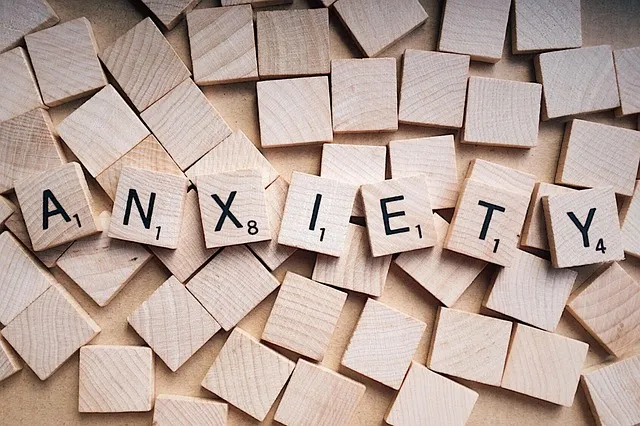Mental health advocacy groups like Kaiser Centennial provide tailored services and support through crisis intervention, journaling exercises, podcasts, and workshops. To maximize benefits, individuals should research their services, attend stress management sessions, promote cultural sensitivity, and plan for risk management. Community engagement, focusing on open dialogue, peer support, and education, further enhances mental health service accessibility and overall well-being. Learn how to access these resources through Kaiser Centennial for a transformative experience.
Mental health advocacy plays a pivotal role in fostering communities that prioritize well-being. This article explores initiatives designed to empower individuals and enhance access to vital services, with a particular focus on understanding advocacy, leveraging resources like Kaiser Centennial, navigating complex care systems, and building supportive community networks. By examining these strategies, we aim to illuminate paths toward better mental health outcomes for all. Discover how to get mental health services through Kaiser Centennial and other accessible gateways.
- Understanding Mental Health Advocacy: Empowering Voices
- Kaiser Centennial: A Gateway to Accessible Services
- Strategies for Navigating Mental Health Care Systems
- Building Community Support Networks for Better Access
Understanding Mental Health Advocacy: Empowering Voices

Mental health advocacy initiatives play a crucial role in creating a supportive environment for individuals facing various challenges. At its core, mental health advocacy involves empowering individuals to speak up and access services that can transform their lives. Understanding the power of advocacy means recognizing that everyone deserves support, especially when navigating complex issues like trauma or seeking Crisis Intervention Guidance. By encouraging open dialogue, these initiatives break down barriers and ensure people receive the help they need.
Through programs offered by organizations like Kaiser Centennial, individuals learn how to access Mental Health Services tailored to their unique needs. This process equips them with Conflict Resolution Techniques, enabling them to handle challenges more effectively. By fostering a community where mental health is prioritized, these advocacy efforts contribute to overall well-being, offering hope and recovery for those facing significant mental health struggles.
Kaiser Centennial: A Gateway to Accessible Services

Kaiser Centennial, a beacon of mental health advocacy, serves as a gateway to accessible services for many. This initiative focuses on breaking down barriers and providing support to those in need. Through a multi-faceted approach, Kaiser aims to ensure that everyone has the opportunity to prioritize their mental wellness.
One key strategy involves offering Crisis Intervention Guidance, empowering individuals with tools to manage acute situations effectively. Additionally, they promote Mental Wellness Journaling Exercise Guidance as a means of self-reflection and personal growth. To cater to diverse learning styles, Kaiser also produces a Mental Wellness Podcast Series, offering expert insights and relatable stories that encourage open conversations about mental health. These comprehensive efforts exemplify how organizations can foster a culture of care and accessibility for better mental health outcomes.
Strategies for Navigating Mental Health Care Systems

Navigating mental health care systems can be a complex and often daunting task for individuals seeking support. Understanding how to access services effectively is a crucial step towards improving one’s mental well-being. For those considering Kaiser Centennial as their preferred provider, there are several strategic approaches to ensure a smoother process. One of the initial steps involves researching and familiarizing oneself with the organization’s range of mental health services, including therapy options, support groups, and crisis intervention programs.
Additionally, attending Stress Management Workshops Organization sessions can equip individuals with valuable coping strategies and provide insights into navigating the healthcare system. These workshops often offer practical advice on managing stress, anxiety, or other common mental health concerns. Another beneficial initiative is integrating Cultural Sensitivity in Mental Healthcare Practice, ensuring that patients feel understood and supported by professionals who respect their unique cultural backgrounds. This approach fosters trust and encourages individuals to seek help without barriers. Moreover, having a comprehensive Risk Management Planning for Mental Health Professionals can enhance the overall experience, as it enables providers to offer personalized care while managing potential risks or challenges.
Building Community Support Networks for Better Access

Building supportive communities is a key strategy to enhance mental health services accessibility, especially for those seeking support through Kaiser Centennial or similar healthcare providers. By fostering strong connections within a community, individuals facing mental health challenges can find comfort and understanding. This approach encourages people to openly discuss their struggles, breaking down the stigma often associated with mental illness. Community networks provide a safe space where members can share experiences, offer peer support, and educate others about various aspects of mental wellness.
Such initiatives promote self-advocacy and empower individuals to take control of their well-being. Through community engagement, people learn effective communication strategies, enhancing their ability to express their needs and seek help. Moreover, these networks facilitate the exchange of valuable resources and information related to stress management, ensuring members have access to essential tools for maintaining mental resilience. By building a supportive ecosystem, communities can positively impact how individuals interact with mental health services, making it easier to access care and fostering overall well-being.
Mental health advocacy initiatives, such as empowering voices and improving access to services, are pivotal in creating a supportive ecosystem. Programs like Kaiser Centennial offer gateways to accessible care, while strategic navigation of mental health systems is essential. Building robust community support networks enhances overall well-being. By understanding these aspects and utilizing resources effectively, individuals can navigate the system and secure the mental health services they need, ultimately fostering healthier communities. For those seeking guidance, exploring how to get mental health services through Kaiser Centennial or similar programs can be a meaningful step towards better access and improved mental wellness.






